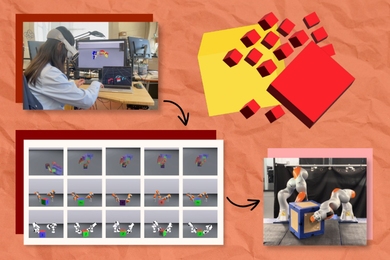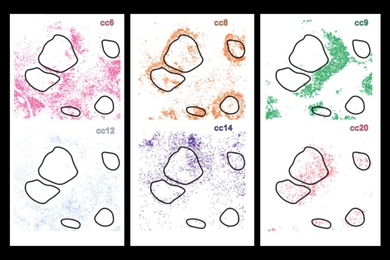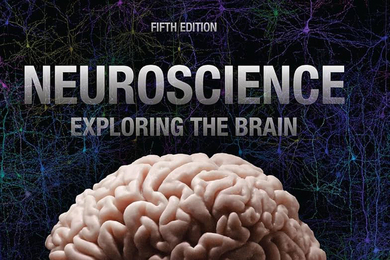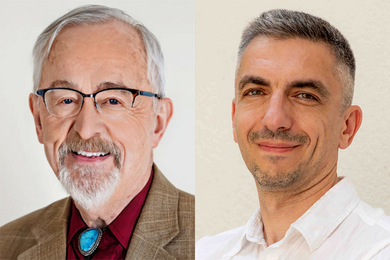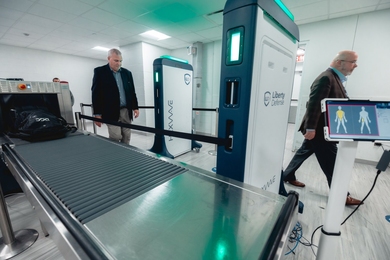An MIT PhD candidate in electrical engineering and computer science will describe a novel professional development program for graduate students and its impact at MIT at the annual meeting of the American Association for the Advancement of Science in Boston.
Aisha Walcott, the PhD candidate, helped found the innovative program, called the Academy of Courageous Minority Engineers (ACME), with other MIT doctoral students in 2003.
Walcott's presentation is based on a paper titled "The Academy of Courageous Engineers: A Model for Supporting Minority Students in the Completion of Science and Engineering Degrees." It will include a demonstration with fellow MIT graduate students and ACME alumni.
The ACME framework includes web technology, weekly face-to-face meetings and a research seminar series. It also features a forum for addressing inherent aspects of the graduate student experience such as building advisor/advisee relationships, leveraging collegial networks and selecting good lab environments.
According to Walcott, who studies robotics, the ACME program has broad applications for any graduate student body since support and goal setting are universal challenges. Students participating in ACME have specialized in disciplines including aeronautics and astronautics, architecture, biology, chemistry, computer science, mechanical engineering and operations research.
Academic institutions have tried support groups and other efforts to facilitate graduate student success. ACME designers went further.
"Examining basic peer-to-peer support mechanisms, we found that smaller groups were more efficient and effective. Then we went on to develop computational supports for fostering accountability, providing constructive feedback and setting realistic goals," Walcott said.
The ACME web-based system was designed by Eric Brittain, a PhD candidate in EECS who studies educational technology. The system is used for managing and tracking goals specific to achieving graduate degree milestones. Users can also share comments and personal and peer progress.
To date, more than 45 graduate students have participated in the ACME program, and approximately half of these students have earned their graduate degrees.
ACME alumna Ishara Mills PhD '07 said, "ACME provided me with multiple opportunities to explain my research to my peers from a variety of research backgrounds. As a result of the feedback, I was able to determine the crucial hypotheses and experimental directions that I wanted to address."
Robbin Chapman, manager of diversity recruitment in the School of Architecture and Planning, credits her 2006 PhD, in part, to ACME's combination of professional support, scholarship and strategic goal setting.
"ACME was a valuable tool I used to identify my graduate program needs, engage in critical reflection on effective strategies and move toward my goals. It made it possible for me to see both the forest AND the trees," said Chapman.
ACME receives support from the MIT Graduate Students Office.
A version of this article appeared in MIT Tech Talk on March 5, 2008 (download PDF).


